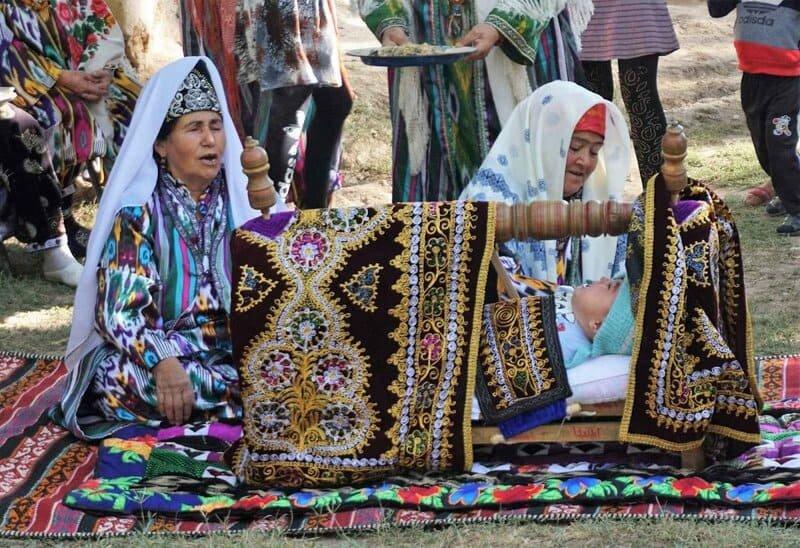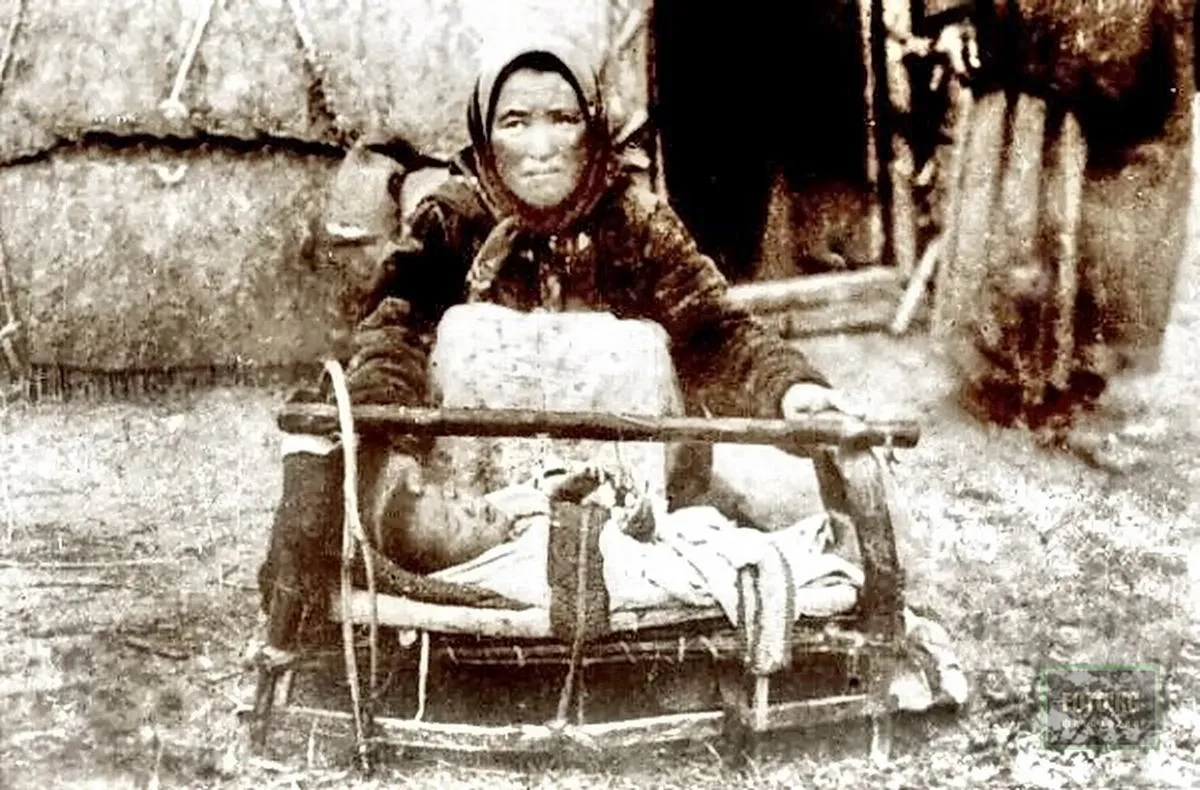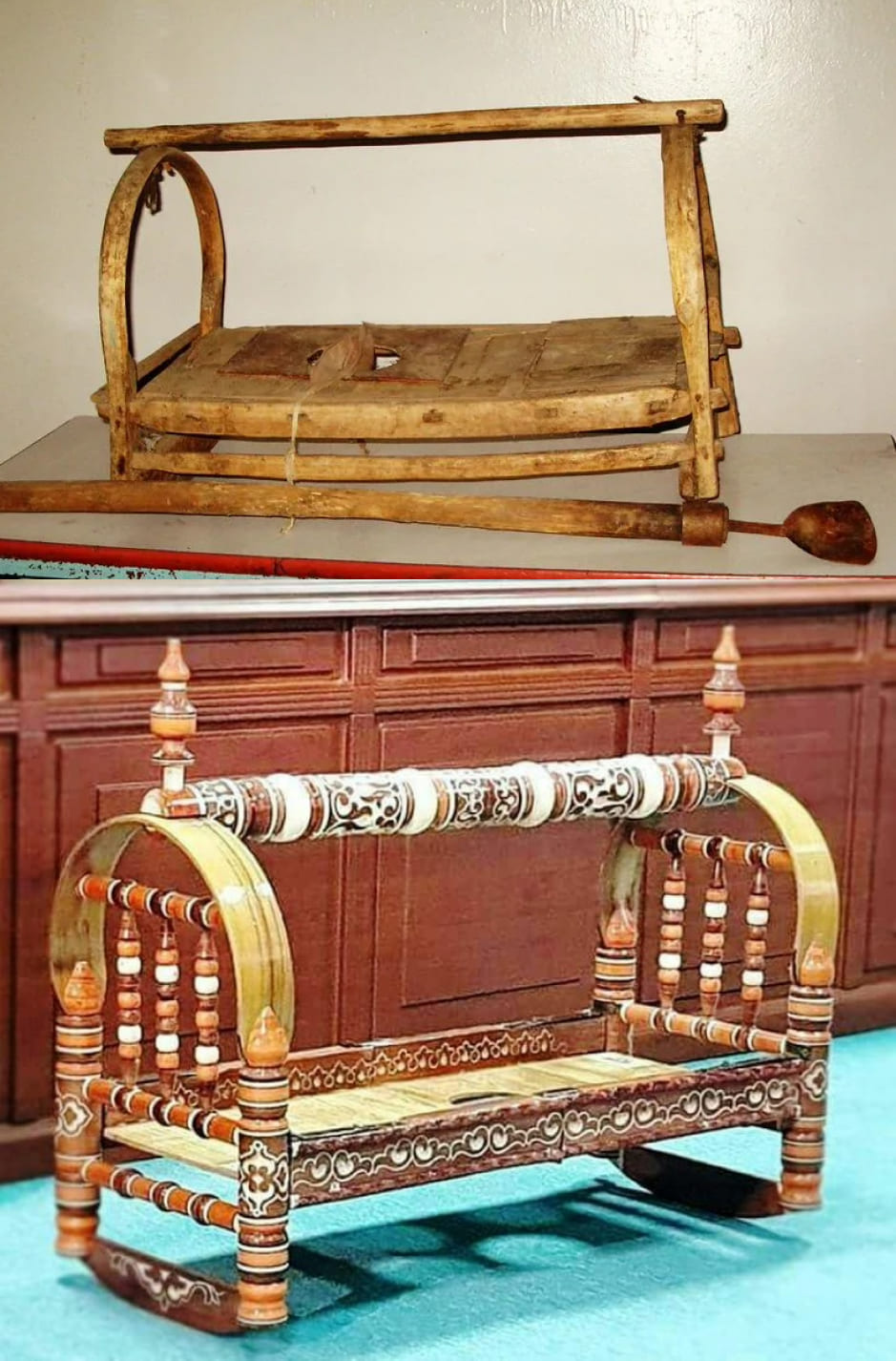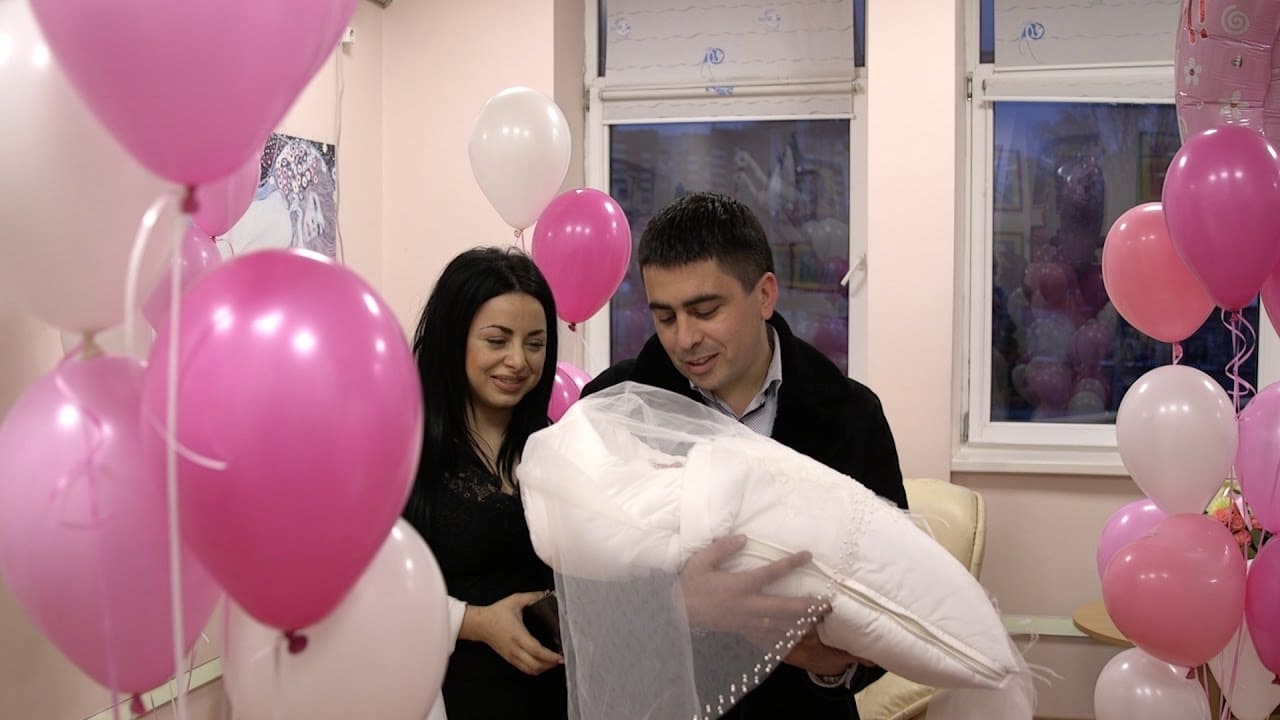


Leave your contact details and we will contact you

Children have always been very significant for the Uzbek family, that is why the gestation period received great attention. Observation of various rites and rituals served the main priorities: the stable condition of the woman and the birth of a healthy child. It is common for a modern woman to attend women’s clinics and give birth in maternity hospitals. In this regard, some traditional customs, beliefs, and rites related to the pregnancy period have disappeared, as well as those that were performed during the 40 days of confinement after childbirth (chilla – forty days). The rites and customs belonging to the children’s cycle in all groups of Uzbeks are similar in many ways. The survival of these rites and the degree of their traditionalism are largely dependent on their preservation in unique natural and geographical conditions, remoteness from the centers of cultural and economic life. Most of the surviving rites are related to food bans; also, pregnant women are prohibited from stepping into houses where somebody died. Visiting large ceremonies, as well as passing by mazārs, slaughterhouses, and garbage dumps, stepping on ash or manure, and so on, is not recommended for pregnant women.
There is still a traditional belief about a woman’s “impurity” after giving birth to a child. She should not get close to the hearth, cook food, or touch dishes. According to traditional views, after 40 days, the woman passes from a state of sacred “impurity” to a normal state. The woman and her baby try not to leave the house during the whole chilla period. Today, the strict prohibitions that existed in the past are weakening. For instance, the woman does not stay isolated from social life for the entire period of 40 days, but only during kichik chilla, that is, 20 days.

When the mother returns from the maternity hospital, the baby is usually bathed every 2-3 days over the chilla period. After the first bathing, the first shirt is traditionally put on a child, which is called differently nowadays – chilla kōylak, chillalik oq kōylak, oq kōylak, chillaki. During the first 40 days, a name is given to a newborn. At the same time, the baby is put in a traditional cradle (beshik). The cradle is usually passed from child to child, and sometimes from father to first-born child. Passing on to someone else’s children and especially selling the cradle is forbidden.The celebration of the birth of a first-born child is called beshik tōy and can be organized later. Currently, there are no strict dates for these celebrations. Usually, it is held before the child turns 1 year old. The birth of other children in the family is celebrated with the organization of a small treat – chachal (scattering). In the past, on the day of putting the child in beshik, he or she was given a name. The right to give a name to a newborn was given to the grandfather, father, and elderly people who had authority. Today, all family members, even older children, take part in choosing the name. While the mother is in the maternity hospital, family members have to pick a name for the newborn to obtain a birth certificate.Some customs are associated with the end of the chilla period (40 days). On this day, members of the family fry corn or rice, bake 40 small naans (kulcha) and buy sweets. One naan at a time, some fried corn, candies, and cookies are distributed among neighborhood children, so the newborn child grows safely and can run like these grown children in the future.
Particular attention is paid to the first year of the child’s life since it is considered an important time for future health, development, and personality. Especially during the first month, all members of the family pay great attention to hygiene, feeding, and protection of the baby from various infections, etc. An integral part of folklore, such as lullaby songs (alla), is used in communication between adults and young children. Lullabies and folk tales are the initial stages of introducing the spiritual culture of the people and their ethnocultural environment to the baby. Adults perceive the child’s attempts to take the first steps with great joy. There is a custom of spraying water after the child when he or she tries to stand on their own feet and take the first steps. During the first attempts to walk, a cotton ball, nuts, and specially baked small naans (kulcha) were rolled between the child’s legs and handed out to the neighborhood children afterward. The nails of a child in infancy are not cut because nails break naturally. When it is necessary to cut them for the first time, the girl’s nails are previously dipped in flour or touched with surpa (tablecloth for cutting dough) so that she grows up as a good mistress of the home. The boy’s hands are previously laid on the book so that he grows smart and wise. Most of the traditional customs and rites are observed during the early years of a child’s life. Many of them have transformed, changed their shape, lost their magical significance, and sometimes even harmful content. The titles of the previous rites, which sometimes may have lost their traditional essence but still contain echoes of ancient beliefs, are preserved.


SUNNAT- TŌY (CIRCUMCISION CEREMONY)
The traditions and rites of the children’s cycle are usually gender-neutral. However, in the Uzbek family, there is an important rite associated with boys. The sunnat-tōy celebration, which is also called ōğil tōy (celebration in honor of a son), hatna tōy (celebration in honor of circumcision ceremony), is arranged in connection with circumcision.
Circumcision in the Muslim world for a long time has been seen as a sign of a person’s belonging to Islam. Circumcision is a mandatory rite. Circumcision-chipron itself is often carried out without outsiders in a close circle of relatives. Nowadays, many families, especially urban ones, ask surgeons to perform a circumcision, which is done in the hospital. Reaching out to the master (usta) of this procedure is also preserved.
Today, on the wave of returning to national traditions, the rite of muchal-tōy began to be held again; traditionally, it was arranged when a person managed to pass the 12-year cycle of the eastern calendar.
Enter your e-mail address to keep abreast of the latest publications
